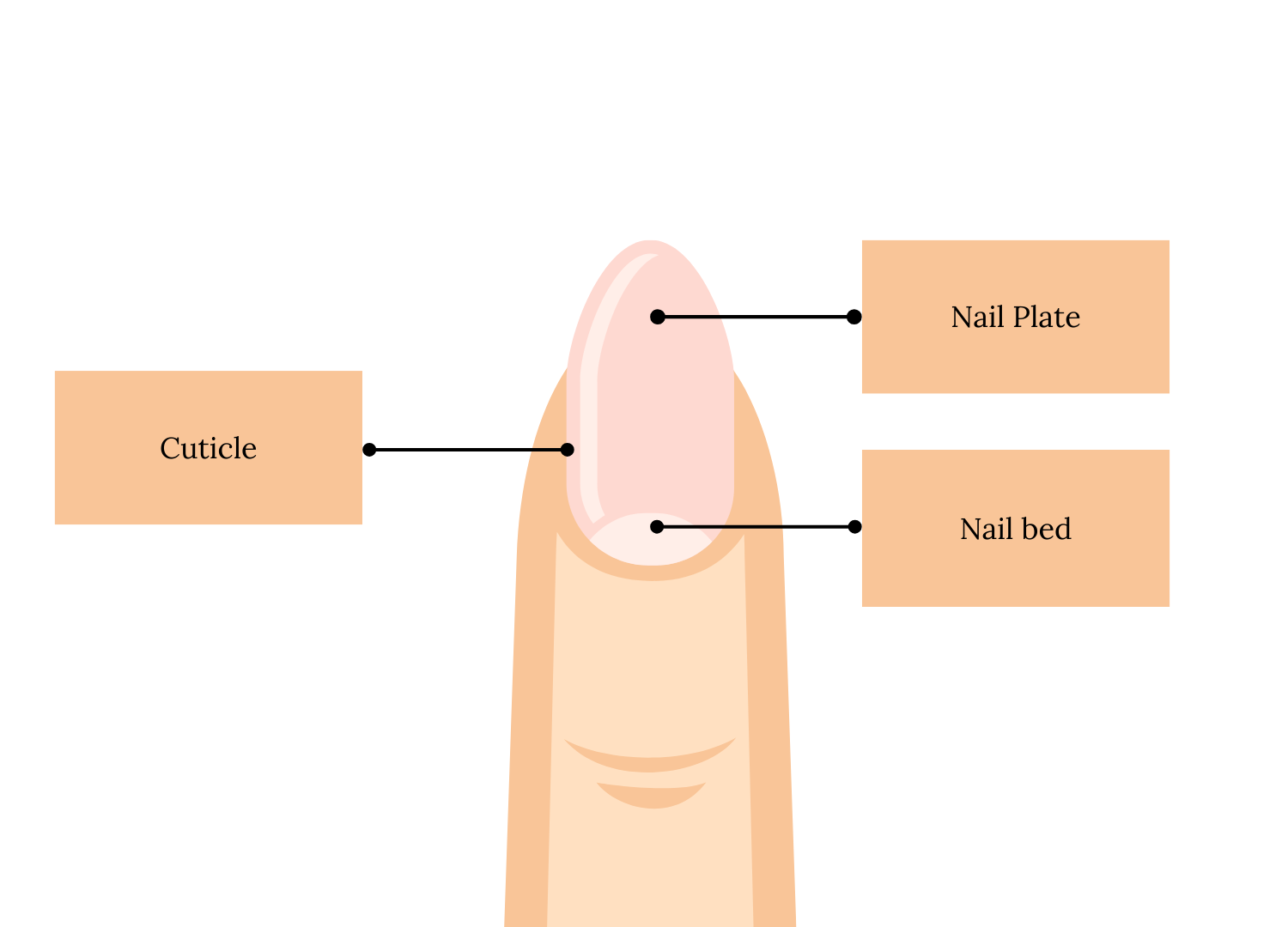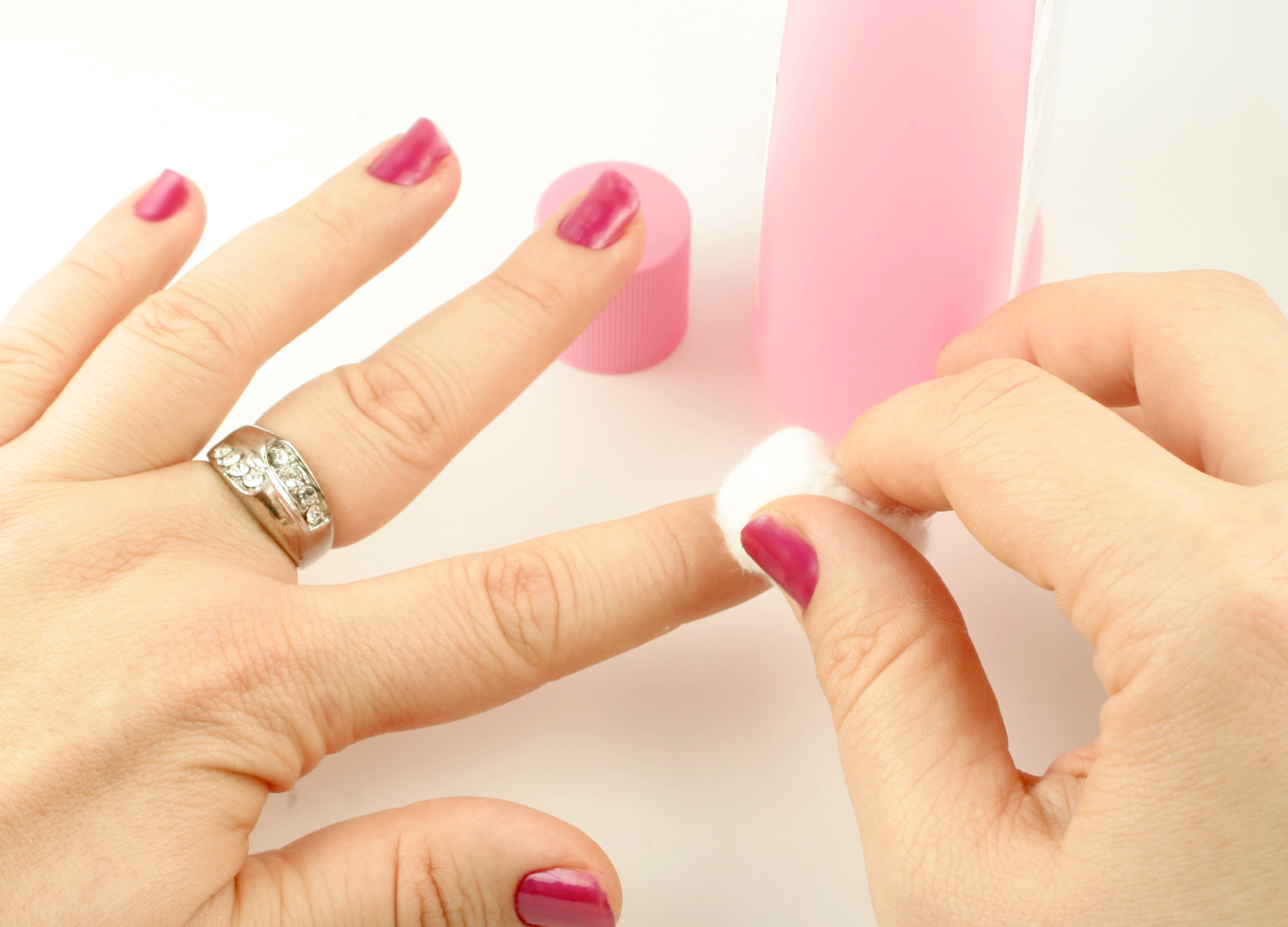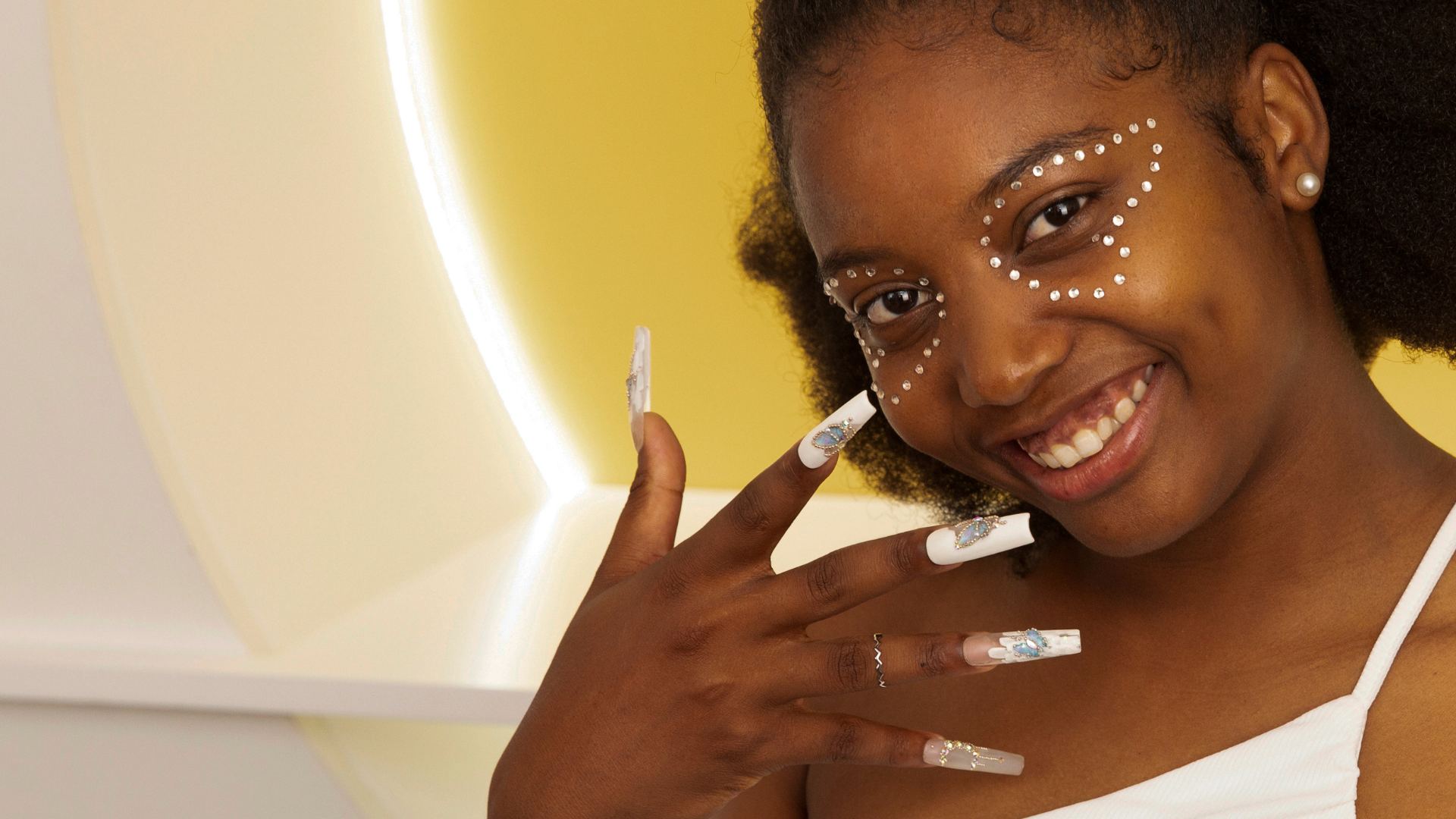
Have you ever wondered why your nails seem brittle, weak, or discolored? The answer may lie in your diet. Just like the rest of your body, your nails require proper nutrition to stay healthy and strong. In this blog post, we’ll explore the connection between nail health and nutrition, and discover which foods can help you achieve stronger, more resilient nails.
Nail Structure and Growth
To better understand how nutrition affects nail health, it’s essential to know the basic anatomy of our nails. Each nail is composed of several parts:
- Nail plate: The visible, hard part of the nail made of keratin.
- Nail bed: The skin directly beneath the nail plate, which contains blood vessels and nerves.
- Nail matrix: The hidden part of the nail under the cuticle, responsible for producing new nail cells.
-
Cuticle: The protective seal of skin around the base of the nail plate that helps prevent infections.

Our nails grow an average of 3.5 millimeters (0.14 inches) per month, with fingernails growing faster than toenails. This growth rate can be affected by factors such as age, hormones, and overall health.
Several signs can indicate that your nails are not as healthy as they should be:
- Brittleness: Nails that easily break, chip, or crack may be a sign of dryness or nutritional deficiencies.
- Discoloration: Yellow, brown, or pale nails can indicate fungal infections, smoking, or underlying health conditions.
- Ridges: Vertical ridges are common and usually harmless, but deep horizontal ridges (Beau’s lines) may signify a more serious health issue.
- Peeling: Nails that peel or flake away can be due to external factors like exposure to water and chemicals or internal factors like nutrient deficiencies.
If you consistently notice these symptoms, it’s important to assess your diet and lifestyle habits, as they can significantly impact nail health. For example, pale or spoon-shaped nails may suggest an iron deficiency, while white spots on the nails could indicate a zinc deficiency. Consuming a balanced diet rich in essential nutrients and maintaining proper nail care can help improve the appearance and strength of your nails.
Nutrients Essential for Nail Health
A balanced diet rich in essential nutrients is key to maintaining strong and healthy nails. Let’s focus on the most important vitamins and minerals for nail health.
Protein and Keratin
Nails are primarily made of keratin, a type of protein. Adequate protein intake is crucial for keratin production. Include protein-rich foods like lean meats, poultry, fish, eggs, beans, and nuts in your diet.
Key Vitamins
- Biotin (B7): Strengthens nails and prevents brittleness. Sources include egg yolks, almonds, and whole grains.
- Vitamin C: Essential for collagen production, which maintains nail bed integrity. Found in citrus fruits, berries, and bell peppers.
- Vitamin A: Supports keratin production. Sources include sweet potatoes, carrots, and leafy greens.
- Vitamin E: Antioxidant that protects nails from damage. Found in almonds, sunflower seeds, and avocados.
Essential Minerals
- Iron: Prevents brittle and spoon-shaped nails. Sources include red meat, poultry, beans, and fortified cereals.
- Zinc: Crucial for nail growth and repair. Found in oysters, beef, pumpkin seeds, and lentils.
-
Selenium: Antioxidant that supports nail health. Sources include Brazil nuts, tuna, and eggs.

Incorporate a variety of these nutrient-rich foods into your diet to supply your nails with the building blocks they need to stay strong and healthy. Typically, you can expect to see noticeable improvements in your nail health within 3 to 6 months of consistent dietary changes, as nails grow slowly. If you suspect a deficiency or have persistent nail issues, consult a healthcare professional.
Foods That Promote Strong and Healthy Nails
Specific foods into your diet can help you achieve stronger and healthier nails. Let’s explore the best food sources for the essential nutrients we discussed earlier.
Protein-Rich Foods for Keratin Production
Adequate protein intake is vital for keratin production. Include these protein sources in your diet:
- Animal proteins: Lean meats like chicken and turkey, fish (especially fatty fish like salmon and tuna), and eggs, which also contain biotin.
- Plant proteins: Legumes such as lentils, chickpeas, and black beans; nuts and seeds, particularly almonds and sunflower seeds; and quinoa, a protein-rich whole grain.
Nutrient-Dense Fruits and Vegetables
Fruits and vegetables are excellent sources of vitamins and minerals that support nail health. Include these in your meals:
- Vitamin C-rich foods: Citrus fruits like oranges, grapefruits, and lemons; berries, especially strawberries and blueberries; and bell peppers, particularly red and yellow ones.
- Vitamin A-rich foods: Orange and yellow vegetables like carrots, sweet potatoes, and squash; and leafy greens such as spinach, kale, and collard greens.
-
Vitamin E-rich foods: Almonds and almond butter, sunflower seeds and sunflower seed butter, and avocados.

Biotin-Rich Foods
Biotin is crucial for maintaining strong nails. Incorporate these biotin-rich foods into your diet: egg yolks, nuts (particularly almonds and walnuts), seeds (such as sunflower seeds and chia seeds), and whole grains like oats and barley.
Iron and Zinc Sources
Iron and zinc play essential roles in nail health. Include these food sources in your meals:
- Iron-rich foods: Lean red meat like sirloin or tenderloin, dark meat poultry such as chicken thighs, beans and lentils, and fortified cereals and whole grains.
- Zinc-rich foods: Oysters (one of the best sources of zinc), beef and lamb, pumpkin seeds, and yogurt and milk.
Hydrating Foods for Nail Health
In addition to drinking water, eating hydrating foods can help keep your nails moisturized and healthy. Include these water-rich foods in your diet: cucumbers, watermelon, zucchini, celery, and tomatoes.
By regularly incorporating these nutrient-dense foods into your meals, you can provide your nails with the essential building blocks they need to stay strong and healthy.But remember, keeping nails healthy doesn't stop at diet. Achieving and maintaining good nail health also involves regular and proper care. Learn more about The Importance of Nail Hygiene: Preventing Infections and Problems in our subsequent blog post.
Other Factors Influencing Nail Strength and Health
While a balanced diet is crucial for healthy nails, other factors can also impact their strength and appearance:
- Environmental exposure: Frequent contact with harsh chemicals, such as cleaning agents and solvents, can weaken nails. Excessive water exposure can also lead to brittleness. Wear protective gloves to minimize damage.
- Nail cosmetics and treatments: Some nail polishes, particularly those containing formaldehyde, toluene, and dibutyl phthalate (DBP), can cause dryness and brittleness. Acetone-based removers can also be harsh. It is crucial to choose non-toxic, water-based polishes and acetone-free removers to mitigate these effects. Understanding the broader impact of cosmetic choices on your nails, including the long-term use of products like acrylic nails, is essential for maintaining nail health. Dive deeper into how various treatments affect your nails over time by exploring our Complete Guide to Acrylic Nails and Thinning Nails.
-
Nail care practices: Avoid excessive filing, which can weaken nails. Use a fine-grit emery board and file in one direction. Keep nails trimmed to prevent snagging and breaking. When pushing back cuticles, be gentle and avoid cutting them to prevent infections. Regularly moisturize nails and cuticles to prevent dryness and cracking.

Be mindful of these external factors and adopt gentle nail care practices to protect your nails from damage and promote overall strength and health. If you notice
persistent nail problems despite proper care, consult a dermatologist or healthcare provider to rule out underlying health issues.
When to Seek Professional Advice
While a balanced diet and proper nail care can help maintain healthy nails, sometimes persistent nail problems may indicate an underlying health issue. It’s essential to be aware of nail changes that warrant a consultation with a healthcare provider or dermatologist.
If you notice any of the following nail changes, it’s best to seek professional advice:
- Discoloration: Healthy nails should be pink or flesh-colored. If your nails appear yellow, brown, or green, it could indicate a fungal infection or a more serious condition like diabetes or liver disease.
- Thickening: Nails that become thicker, harder, or more brittle than usual may be a sign of a fungal infection, psoriasis, or thyroid disorders.
- Unusual shape: If your nails curve downward, develop ridges, or have an unusual shape, it could be a sign of iron deficiency, vitamin deficiencies, or other health problems.
- Separation: If your nails separate from the nail bed or appear to be lifting, it could indicate a fungal infection, psoriasis, or a reaction to certain medications.
- Dark lines or spots: Dark lines or spots under the nail may be a sign of melanoma, a type of skin cancer. It’s crucial to have any dark spots evaluated by a dermatologist.
If you experience any of these persistent nail changes, don’t ignore them. A healthcare provider or dermatologist can help diagnose the underlying cause and recommend appropriate treatments, which may include oral or topical medications, dietary changes, or lifestyle modifications.

Take Action for Strong, Healthy Nails!
A balanced diet and proper nail care are essential for maintaining strong, healthy nails. Eating a variety of nutrient-rich foods and being mindful of external factors that can damage nails will help keep them looking their best. Along with this, opting for safe cosmetic alternatives, such as high-quality Press-on Nails, can offer a beautiful finish without compromising the health of your natural nails. However, it’s important to allow your nails to breathe between applications, as prolonged use of press-on nails could potentially weaken your natural nails. Ensure that removal is done gently to avoid any damage to the nail bed.



